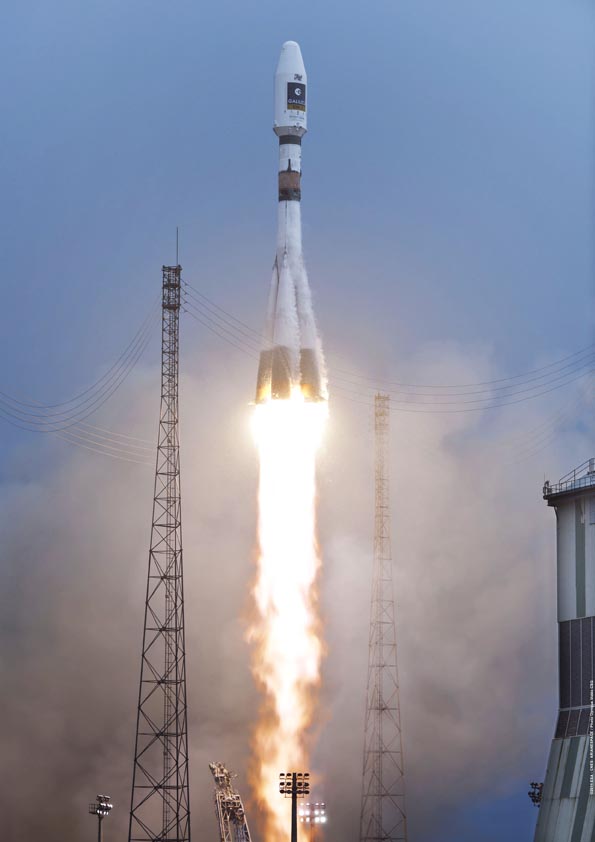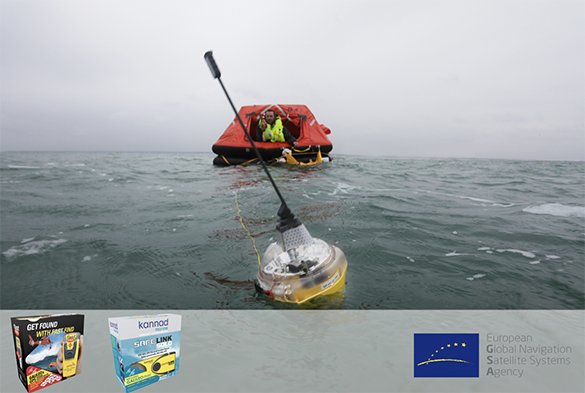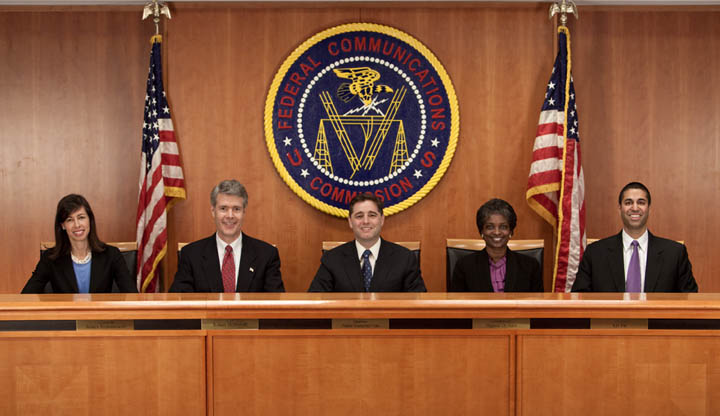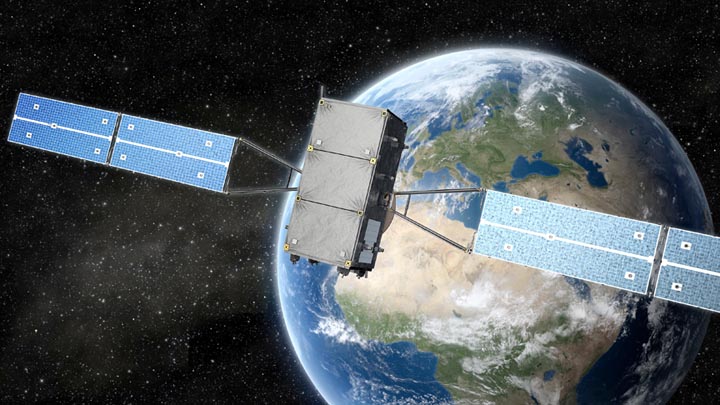 Russian Soyuz rocket lifts off Europe’s Kourou spaceport pad with first two Galileo IOV satellites on board. ESA photo. Photo: ESA/CNES/ARIANESPACE/Optique Video Du CSG
Russian Soyuz rocket lifts off Europe’s Kourou spaceport pad with first two Galileo IOV satellites on board. ESA photo. Photo: ESA/CNES/ARIANESPACE/Optique Video Du CSGAs the first two operational Galileo satellites enter orbit following this morning’s launch (October 21, 2011), a closely knit team of engineers from the European Space Ageny (ESA) and CNES, France’s space agency, assumed control.
As the first two operational Galileo satellites enter orbit following this morning’s launch (October 21, 2011), a closely knit team of engineers from the European Space Ageny (ESA) and CNES, France’s space agency, assumed control.
The first two Galileo In-Orbit Validation (IOV) satellites started their missions just moments after separating from the Fregat upper stage of their Soyuz launcher. Following the liftoff of Soyuz VS01 at 12:30 CEST (7:30 a.m. EDT), all of the Soyuz stages performed perfectly and the Fregat-MT upper
stage released the Galileo satellites into their target orbit at a 23,222-kilometer altitude, 3 hours 49 minutes after liftoff.
"This launch represents a lot for Europe," said Jean-Jacques
Dordain, ESA’s director general. We have placed in orbit the
first two satellites of Galileo, a system that will position our
continent as a world-class player in the strategic domain of satellite
navigation, a domain with huge economic perspectives."
As with any satellite, separation marks the start of the critical Launch and Early Orbit Phase (LEOP), when the spacecraft must carry out a series of automated and, later, commanded actions — including deployment of the solar arrays to obtain power, the switching on of communications and other systems and the setting of initial configurations.
This crucial LEOP period, expected to last about seven days, will be overseen by a tightly integrated team of mission operations specialists drawn from ESA and CNES. These engineers have a wealth of experience in areas such as mission control, on board systems, flight dynamics, and telecommunications.
"Individually, our ESA and CNES team members represent decades of accumulated experience working on dozens of launches," says Nigel Head, ESA’s team lead for the joint LEOP team.
"We started joint training in 2009, and we have worked together smoothly ever since."
For launch of the first two Galileo satellites, the joint LEOP team will work at CNES’ Centre Spatial de Toulouse from a dedicated control room that provides data links to the ground stations and networks that will communicate with the satellites in orbit.
After these initial operations, they will be handed over to SpaceOpal, a
joint company of the DLR German Aerospace Center and Italy’s
Telespazio, to undergo 90 days of testing before being commissioned for
the IOV phase. The Oberpfaffenhofen Galileo Control Center near Munich, operated by the DLR German Aerospace Center, will be responsible for routine operations. Operating the satellite payloads to provide navigation services will be the task of the Fucino Control Center, near Rome, operated by Telespazio.





